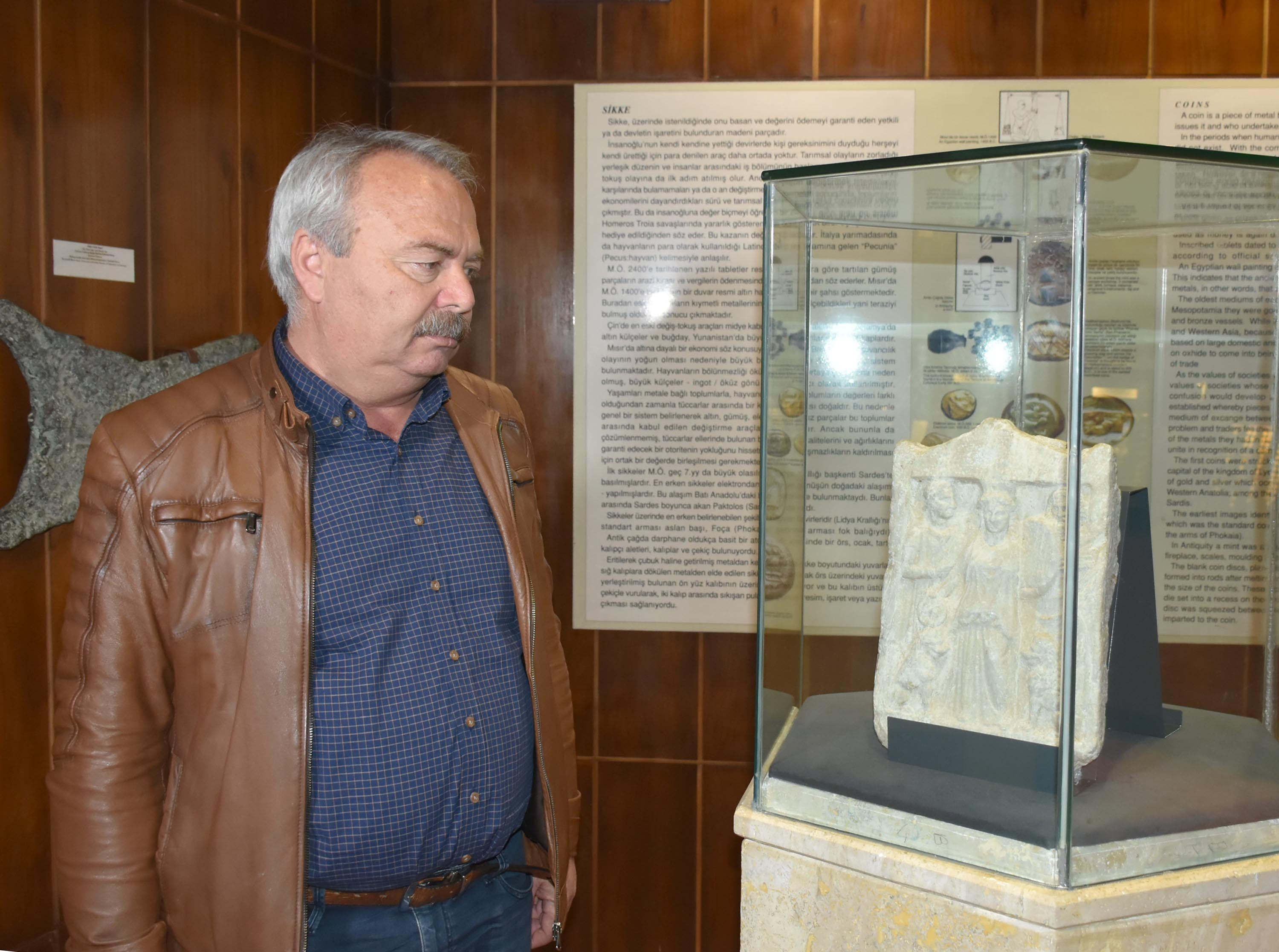© Turkuvaz Haberleşme ve Yayıncılık 2026
A 2,200-year-old marble stele unearthed in the ancient city of Ephesus in the Selçuk district of western Izmir province is now on display for the public for the first time since its discovery. The stele depicts the “mother goddess” Cybele, who was believed to be the ancient Greek symbol and protector of abundance and fertility.
The stele depicts Cybele at the center, with her constant companions, two lions, crouching on her right and left sides. The cult image of the goddess, generally depicted enthroned on a cart drawn by two lions, symbolizes her power over wild animals. The stele also depicts two people standing next to the mother goddess.
Cybele is referred to as Rhea, the wife of Zeus, in Greek mythology. Also called Magna Mater, or Great Mother, she embodies Mother Earth – the supreme mother of all gods, humans and nature.

Izmir Museum Director Cengiz Topal provided information to Demirören News Agency (DHA) about the artifact, explaining: “Cybele is an Anatolian goddess. She symbolizes abundance and fertility. Her dwelling is mostly mountains, reunited with the wild nature."
"It is a 2,200-year-old piece of art made of marble. The stele of the mother goddess Cybele and her lions, engraved with a relief technique, is 40 centimeters (16 inches) long," he added.
Within the scope of the "12 Months, 12 Exhibitions" project launched by the Izmir Archaeology Museum Directorate, never-before-displayed artifacts registered in the museum's inventory will be unveiled starting in April.
